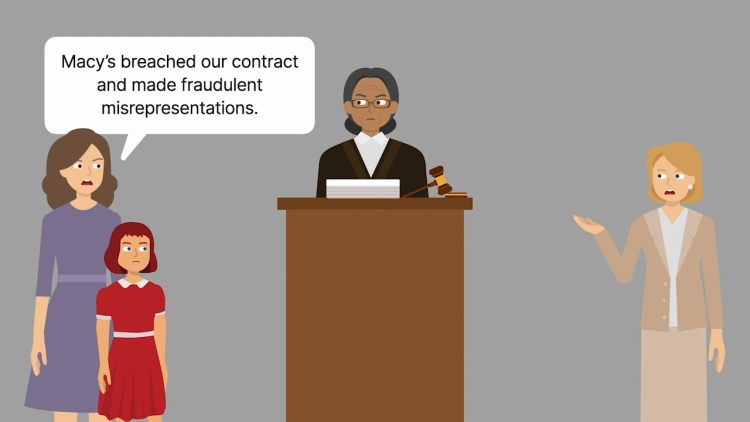Pacitti v. Macy’s
United States Court of Appeals for the Third Circuit
193 F.3d 766 (1999)

- Written by Rich Walter, JD
Facts
Macy's (defendant) contracted with the producers of the musical "Annie" to promote "Macy's Search for Broadway's New 'Annie,'" a contest to select the juvenile lead in the show's title role. Macy's promotional material promised contestants that the winner would star both on tour and on Broadway. The parents of Joanna Pacitti (plaintiffs) signed a contractual agreement with Macy's, enabling Joanna to enter the contest and promising that, if Joanna won the contest, the producers would give her a standard theatrical contract to star in "Annie." The standard theatrical contract allowed the producers to replace Joanna at any time. Joanna appeared in "Annie" on tour, but the producers replaced her before the show reached Broadway. The Pacittis sued Macy's for breach of contract. The federal district court denied the Pacittis's motion to include the relationship of Macy’s with the producers within the scope of discovery. At trial, the court ruled that the contractual agreement unambiguously obligated Macy's only to ensure that Joanna received a standard theatrical contract to appear in "Annie," and that Macy's fulfilled that obligation. The court granted summary judgment for Macy's, and the Pacittis appealed to the United States Court of Appeals for the Third Circuit.
Rule of Law
Issue
Holding and Reasoning (Alito, J.)
Dissent (Stafford, J.)
What to do next…
Here's why 907,000 law students have relied on our case briefs:
- Written by law professors and practitioners, not other law students. 47,100 briefs, keyed to 996 casebooks. Top-notch customer support.
- The right amount of information, includes the facts, issues, rule of law, holding and reasoning, and any concurrences and dissents.
- Access in your classes, works on your mobile and tablet. Massive library of related video lessons and high quality multiple-choice questions.
- Easy to use, uniform format for every case brief. Written in plain English, not in legalese. Our briefs summarize and simplify; they don’t just repeat the court’s language.







